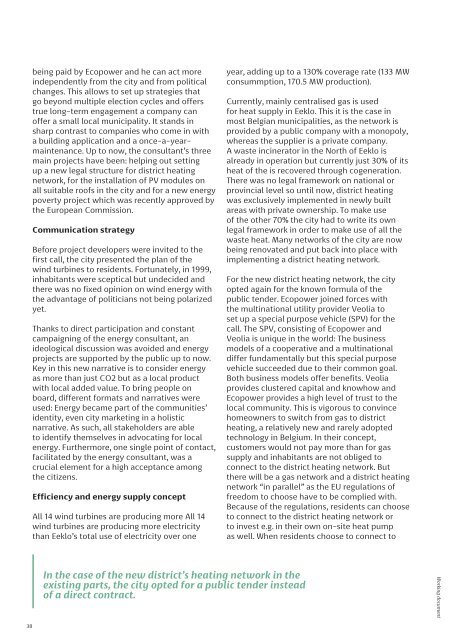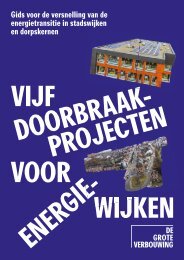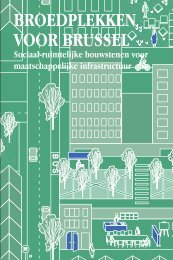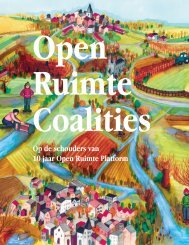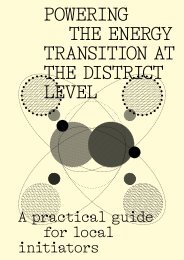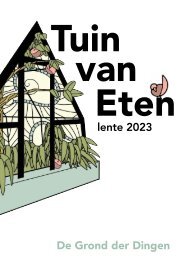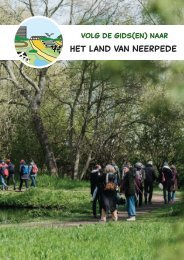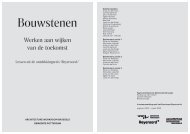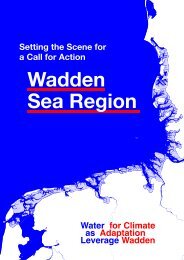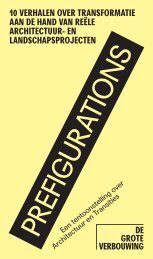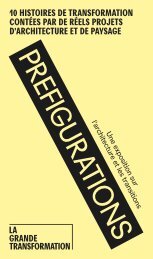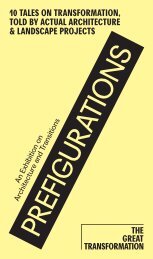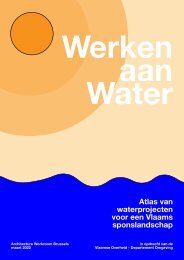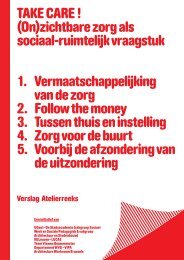Cities4PEDs Atlas_November 2021.pdf
Atlas - From 7 case interviews to recurring strategies and PED relevant aspects
Atlas - From 7 case interviews to recurring strategies and PED relevant aspects
- No tags were found...
You also want an ePaper? Increase the reach of your titles
YUMPU automatically turns print PDFs into web optimized ePapers that Google loves.
eing paid by Ecopower and he can act more<br />
independently from the city and from political<br />
changes. This allows to set up strategies that<br />
go beyond multiple election cycles and offers<br />
true long-term engagement a company can<br />
offer a small local municipality. It stands in<br />
sharp contrast to companies who come in with<br />
a building application and a once-a-yearmaintenance.<br />
Up to now, the consultant’s three<br />
main projects have been: helping out setting<br />
up a new legal structure for district heating<br />
network, for the installation of PV modules on<br />
all suitable roofs in the city and for a new energy<br />
poverty project which was recently approved by<br />
the European Commission.<br />
Communication strategy<br />
Before project developers were invited to the<br />
first call, the city presented the plan of the<br />
wind turbines to residents. Fortunately, in 1999,<br />
inhabitants were sceptical but undecided and<br />
there was no fixed opinion on wind energy with<br />
the advantage of politicians not being polarized<br />
yet.<br />
Thanks to direct participation and constant<br />
campaigning of the energy consultant, an<br />
ideological discussion was avoided and energy<br />
projects are supported by the public up to now.<br />
Key in this new narrative is to consider energy<br />
as more than just CO2 but as a local product<br />
with local added value. To bring people on<br />
board, different formats and narratives were<br />
used: Energy became part of the communities’<br />
identity, even city marketing in a holistic<br />
narrative. As such, all stakeholders are able<br />
to identify themselves in advocating for local<br />
energy. Furthermore, one single point of contact,<br />
facilitated by the energy consultant, was a<br />
crucial element for a high acceptance among<br />
the citizens.<br />
Efficiency and energy supply concept<br />
All 14 wind turbines are producing more All 14<br />
wind turbines are producing more electricity<br />
than Eeklo’s total use of electricity over one<br />
year, adding up to a 130% coverage rate (133 MW<br />
consummption, 170.5 MW production).<br />
Currently, mainly centralised gas is used<br />
for heat supply in Eeklo. This it is the case in<br />
most Belgian municipalities, as the network is<br />
provided by a public company with a monopoly,<br />
whereas the supplier is a private company.<br />
A waste incinerator in the North of Eeklo is<br />
already in operation but currently just 30% of its<br />
heat of the is recovered through cogeneration.<br />
There was no legal framework on national or<br />
provincial level so until now, district heating<br />
was exclusively implemented in newly built<br />
areas with private ownership. To make use<br />
of the other 70% the city had to write its own<br />
legal framework in order to make use of all the<br />
waste heat. Many networks of the city are now<br />
being renovated and put back into place with<br />
implementing a district heating network.<br />
For the new district heating network, the city<br />
opted again for the known formula of the<br />
public tender. Ecopower joined forces with<br />
the multinational utility provider Veolia to<br />
set up a special purpose vehicle (SPV) for the<br />
call. The SPV, consisting of Ecopower and<br />
Veolia is unique in the world: The business<br />
models of a cooperative and a multinational<br />
differ fundamentally but this special purpose<br />
vehicle succeeded due to their common goal.<br />
Both business models offer benefits. Veolia<br />
provides clustered capital and knowhow and<br />
Ecopower provides a high level of trust to the<br />
local community. This is vigorous to convince<br />
homeowners to switch from gas to district<br />
heating, a relatively new and rarely adopted<br />
technology in Belgium. In their concept,<br />
customers would not pay more than for gas<br />
supply and inhabitants are not obliged to<br />
connect to the district heating network. But<br />
there will be a gas network and a district heating<br />
network “in parallel” as the EU regulations of<br />
freedom to choose have to be complied with.<br />
Because of the regulations, residents can choose<br />
to connect to the district heating network or<br />
to invest e.g. in their own on-site heat pump<br />
as well. When residents choose to connect to<br />
In the case of the new district’s heating network in the<br />
existing parts, the city opted for a public tender instead<br />
of a direct contract.<br />
Working document<br />
38


